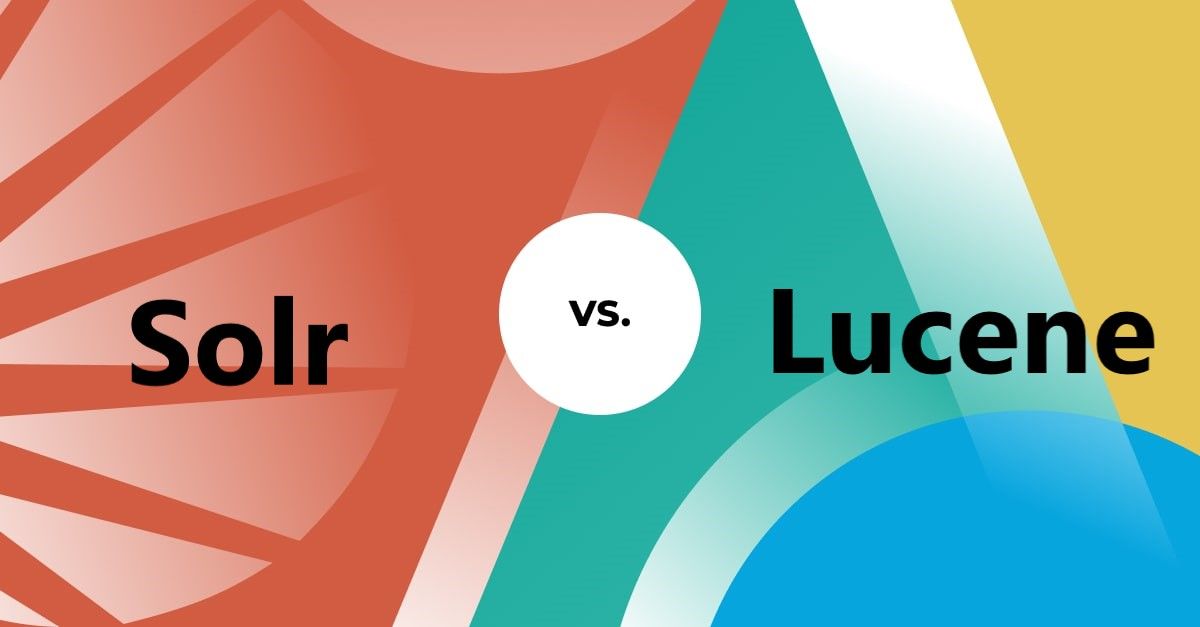
Solr vs. Lucene – Which Full Text Search Solution Should You Use?
In the world of information retrieval and full-text search, Solr and Apache Lucene are two popular solutions that stand out. Both are powerful open-source projects developed by the Apache Software Foundation. Solr is built on top of Lucene, making it an advanced search platform with added features and functionality. In this blog, we'll delve into the key differences between Solr and Lucene and help you understand which solution best suits your needs.

Understanding Apache Lucene:
Apache Lucene serves as the foundation for Solr. It is a Java library providing powerful indexing and search capabilities, allowing developers to integrate full-text search into their applications. Lucene operates at the document level, meaning it indexes and searches individual documents. However, it is primarily a library and does not come with built-in support for HTTP or other communication protocols.
Pros of using Apache Lucene:
➤Lightweight: As a library, Lucene is more lightweight and ideal for projects where custom implementations and fine-tuning are required.
➤Flexibility: Developers have granular control over the indexing and querying processes, making it suitable for complex search requirements.
➤Language Support: Lucene supports a wide range of programming languages, not just Java, thanks to ports and bindings available for other languages.
Cons of using Apache Lucene:
➤Complex Integration: Incorporating Lucene into your application requires more development effort, especially for non-Java projects.
➤Lack of Built-in Features: Lucene lacks certain advanced features present in Solr, like faceting, distributed search, and caching.
Introducing Apache Solr:
Apache Solr, built on top of Lucene, provides an enterprise-level search platform with added features and a user-friendly interface. It exposes the capabilities of Lucene through a RESTful API, making it easier to integrate with various applications. Solr includes additional functionality such as faceting, highlighting, distributed search, and caching.
Pros of using Apache Solr:
➤Ease of Use: Solr's HTTP interface makes it simple to integrate into different applications, enabling faster development and deployment.
➤Rich Features: Solr comes with a wide range of features like faceting, grouping, spell-checking, and geospatial search, making it a robust search solution.
➤Scalability: Solr is designed for high scalability and supports distributed search and indexing, making it suitable for handling large datasets and heavy traffic.
Cons of using Apache Solr:
➤Slightly Heavier: Compared to Lucene, Solr carries more overhead due to its additional features, which might be unnecessary for smaller projects.
➤Learning Curve: While Solr is user-friendly, mastering all its features might require some learning and understanding of the configuration options.
Choosing Between Solr and Lucene:
The decision to use Solr or Lucene depends on your specific project requirements and constraints. Here are some scenarios to consider:
Choose Apache Lucene if:
Your project requires a lightweight search library with no need for additional features.
You want maximum control over the search process and are comfortable handling implementation details.
Choose Apache Solr if:
You need a feature-rich, enterprise-level search solution.
Your project demands scalability and distributed search capabilities.
You prefer a user-friendly interface and ease of integration.
Conclusion:
In summary, both Apache Solr and Apache Lucene are powerful full-text search solutions, but they cater to different use cases. If you seek a lightweight, customizable library, Lucene might be the ideal choice. However, for projects demanding advanced features, scalability, and ease of integration, Solr emerges as the preferred option. Consider your project requirements carefully and contact Nexbrick Inc to make an informed decision to ensure successful implementation and efficient search functionality.
Appreciate the creator